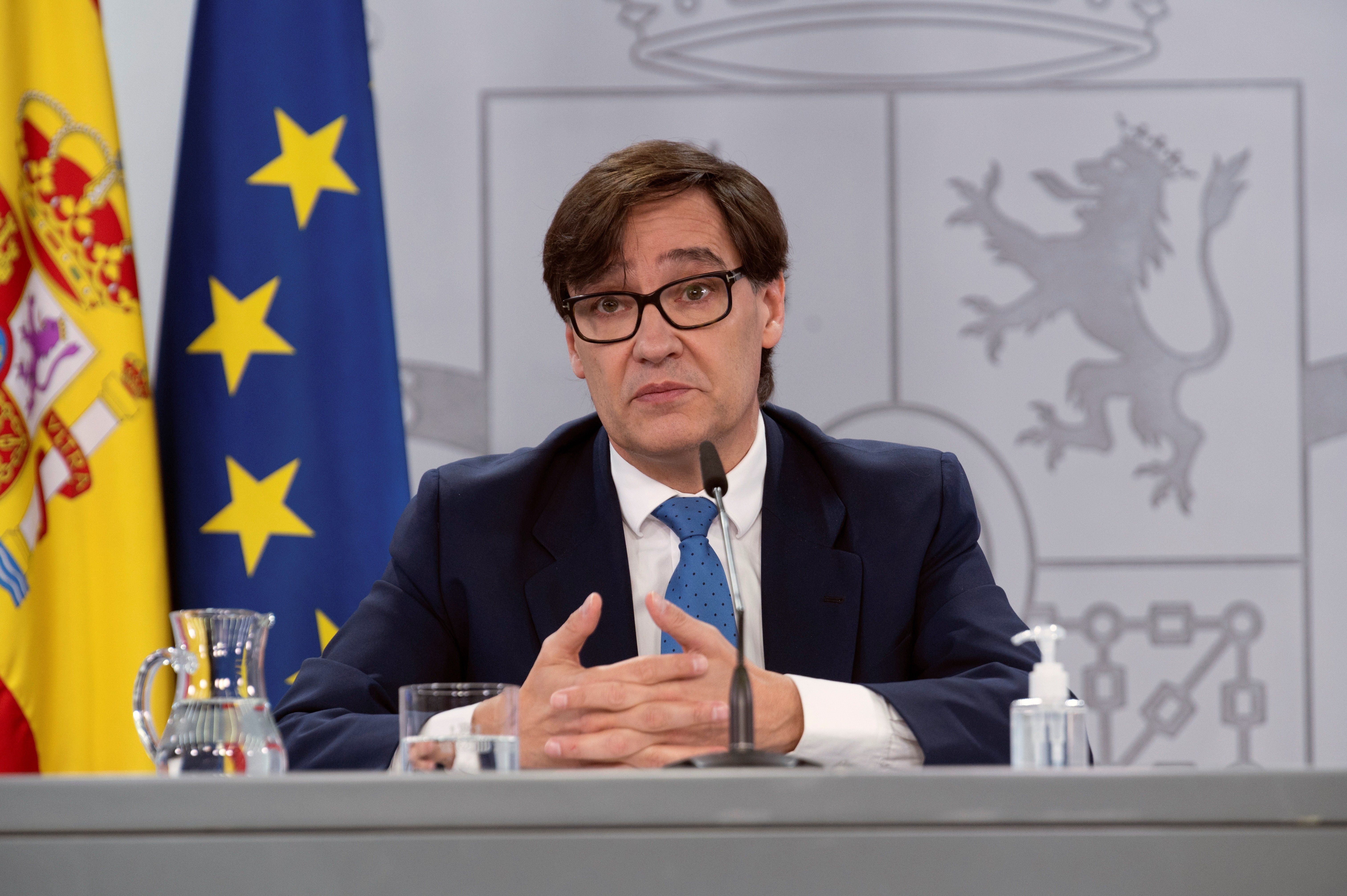Last week, the Spanish state and its autonomous communities postponed a decision on coronavirus measures for Christmas in order to work out a stronger consensus. This Wednesday afternoon the new text arrived at the Interterritorial Health Council, and it found the support it needed. In fact, Salvador Illa's health ministry has revised its content so much that it makes a good match with, for example, the plan that the Catalan government presented today. Among its measures: the size limit on social and family gatherings, which rises from six to ten people. The curfew for Christmas Eve and New Year's Eve is put back to 1:30am. Some restrictions on mobility will also apply, such as perimeter confinement except for travel by family members. These are mandatory minimum measures for each territory, and the different autonomous communities are able to add their own additional restrictions. The Community of Madrid opposed perimeter confinement, but it will have to comply. Catalonia abstained.
Thus, all family celebrations this Christmas will be limited to a maximum of ten people, unless they are a group larger than that already living together. This restriction, which was initially proposed for six people, will be valid for 24th, 25th and 31st December and for 1st January. For the other days, gatherings of six people, as before. It is not specified whether this includes children. In any case, it is recommended that the meetings be "of members belonging to the same cohabitation group", those who are living together day-to-day in the same flat or house.
With regard to the limitation on nighttime mobility (curfew), the ministry's document states that "nighttime confinement will be maintained and going out of the house will be banned at the times established in each autonomous community". However, on December 24th and 31st, communities will be able to extend their hours, with mobility only being prohibited from 1:30am to 6am. That's half an hour later than the plan presented to the autonomous communities last week.
Also over the Christmas period, between 23rd December and 6th January, perimeter confinement of Spanish autonomous communities will be applied. Duly justified trips, as well as travel to other communities where relatives normally live, will be exempt from this restriction. Regarding the latter exception, and depending on the evolution of the epidemiological situation, communities may decide that the exception is "only applicable on certain days." Communities may also apply restrictions within their own territory. Minister Salvador Illa emphasized that this year's celebrations must be "a Christmas at home" and that "any travel that is non-essential" must be avoided.
Why did Catalonia abstain? The Catalan health authorities assure that they do not feel "covered" by the agreement "because the places of decision for these questions are the Procicat and the Catalan government, and not the Interterritorial Council". In this sense, they emphasize that the rules in Catalonia are based on the Christmas Plan approved today as well as the progressive opening plan approved two weeks ago.
It squares up with Catalonia's plan
A few hours before the plan was announced, it was already known that Catalonia was allowing curfew on Christmas Eve and New Year's Eve to be delayed until 1:30am. And on January 5th, set back an hour until 11pm. The Catalan government's acting president, Pere Aragonès, announced the long-awaited plan shaped by the Catalan executive for the Christmas period. At the dinner table, instead of six, the maximum gathering size till now, there can be 10 diners over Christmas - noting that in the Catalan case, children are included in the count of 10 people. The Catalan measures do not clash with the measures agreed today as rules for the entire state.
"We want to get to Christmas with the pandemic under control," said Aragonés, insisting on the need to be responsible over the next few days, with the Puríssima holiday weekend on Tuesday December 8th creating a 4-day break for many. In any case, the ERC politician emphasized that even if the restrictions are eased on Monday 7th, when Catalonia is due to jump to Phase 2 of its second wave de-escalation plan, "these will not be normal holidays" and will not be "celebrated as we would like." It is essential for the Catalan government that people remain cautious "before the vaccine arrives".
"Enjoy Christmas parades on TV"
As well, the ministry's draft also recommends “celebrations that can ensure compliance with public health and prevention regulations". One such recommendation is replacing mass Christmas street parades - like Catalonia's Cavalcada del Reis Mags, the arrival of the Three Kings on January 5th, which fills streets with small children and parents - with static parades in places where access can be controlled, or broadcasts of Christmas events on television or other telematic options”. The bells that ring in the New Year are another case, although following this moment on TV is already a Spanish tradition in itself.
In any case, health authorities will need to assess the risks of virus transmission associated with mass activities, in order to take appropriate measures to reduce risks. For religious celebrations, such as midnight mass, it is recommended that "pre-recorded music" be used and "physical displays of devotion or tradition (kisses, contact with images and figures, etc)" be avoided, replacing them with "other gestures that do not involve health risks”.

